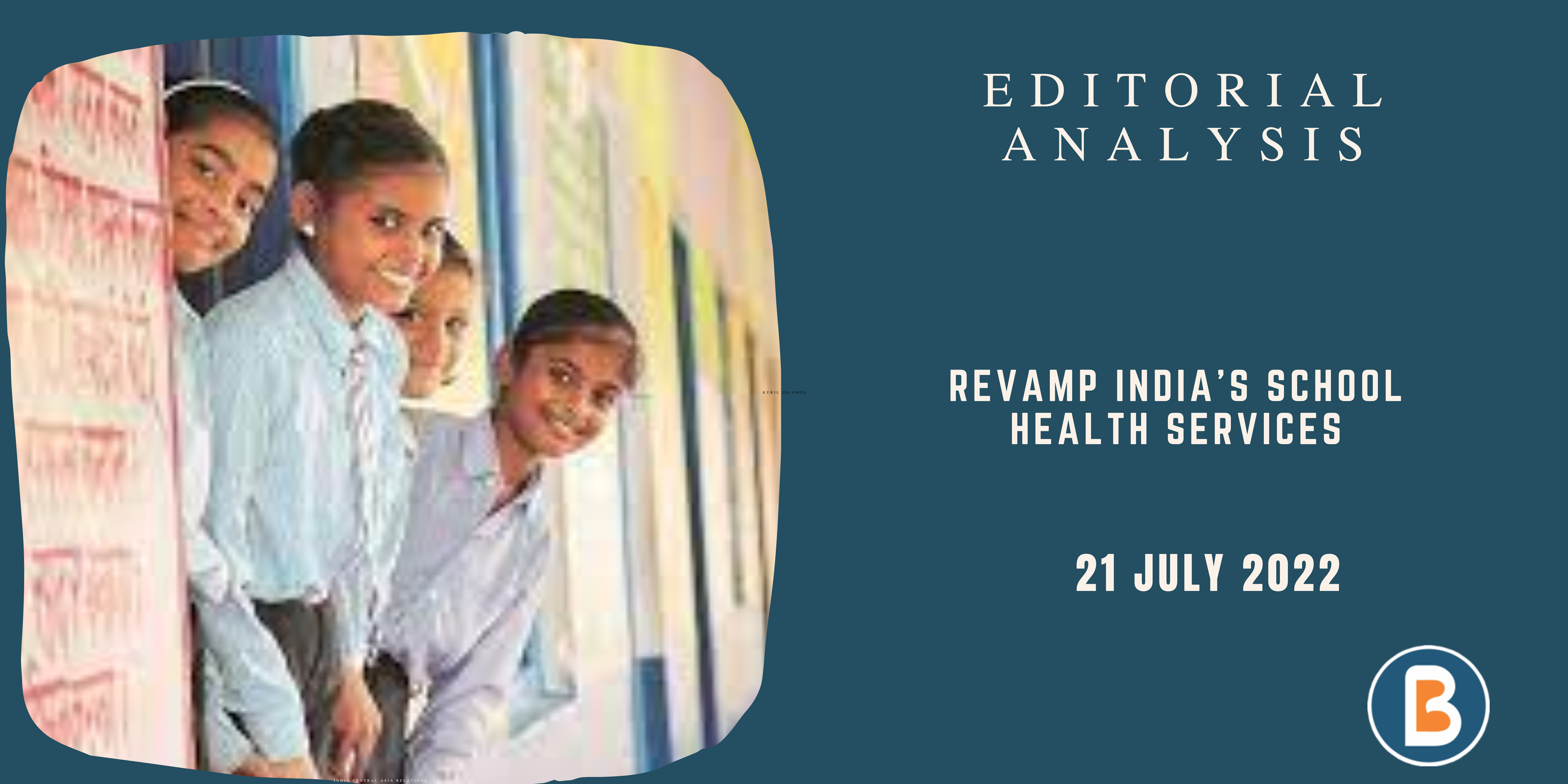Revamp India’s School Health Services
For Mains
Why separate school children healthcare from others?
- School age children have a relatively low sickness rate and thus limited medical care needs.
- However, they do have a wide range and age-specific health needs that are linked to unhealthy dietary habits, irregular sleep, lack of physical activity, mental, dental and eye problems, sexual behaviour, and the use of tobacco and other substances, addiction, etc.
- Also, the health knowledge acquired, and lifestyle adopted in the school-going age are known to stay in adulthood and lay the foundations of healthy behaviour for the rest of their life.
History of School Health services in India
- The first documented record of school health services in India began at 1909 when the then presidency of Baroda began the medical examination of schoolchildren.
- Afterwards, the Sir Joseph Bhore committee, in its 1946 report, observed that school health services in India were underdeveloped and practically non-existent.
- In 1953, the secondary education committee of the Government of India recommended comprehensive policy interventions dealing with school health and school feeding programmes.
Measures taken
- Rashtriya Kishor Swasthya Karyakram (RKSK), Launched by Ministry of Health and Family Welfare (MoHFW) in 2014. Adolescents in the age group of 10 to 19 years fall under the ambit of this scheme.
- In the first week of March 2022, the government of Delhi began 20 school health clinics.
What are the concerns?
- Lack of awareness about the healthcare issues of adolescents.
- The major hurdle for effective implementation of school healthcare services is limited understanding and clarity on what constitutes well-functioning and effective school health services.
- The major focus given to curative measures rather than preventive measures.
- Stigmatisation of mental health issues.
- Government schemes often ignore private schools which leads to improper implementation of said schemes in private schools and are often limited to emergencies and first aid.
Suggestions
- UNESCO, UNICEF, the World Health Organization (WHO) and the World Bank have published an inter-agency framework called FRESH (Focusing Resources on Effective School Health).
- he FRESH framework and tools propose four core areas and three supporting strategies. The core areas suggest that school health services need to focus on school health policies, i.e., water, sanitation and the environment; skills-based health education and school-based health and nutrition services.
- The supporting strategies include effective partnerships between the education and health sectors, community partnership and student participation.
- Centers for Disease Control and Prevention, U.S.A, advise that school health services should focus on four main areas of acute and emergency care; family engagement; chronic disease management; and care coordination.
- According to WHO, school health services should be designed based on local need assessment; should have components of health promotion, health education, screening leading to care and/or referral and support as appropriate.
- Indian States needs to review the status and then draw up a road map to revamp and strengthen school health services, along with a detailed timeline and dedicated budgetary allocation.
- They also have to build upon the existing school health infrastructure; the renewed focus has to have comprehensive, preventive, promotive and curative services with a functioning referral linkage.
- Health talks and lifestyle sessions (by schoolteachers and invited medical and health experts) should be a part of teaching just as physical activity sessions are.
- Some of the teaching must look at adolescent sexual health; also, subjects such as menstrual hygiene, etc. should be integrated into regular classroom teaching.
- School health clinics should be supplemented with online consultation for physical and mental health needs.
- The role and the participation of parents, especially through parent-teacher meetings should be increased.
Source The Hindu
For more updates, Click Here

